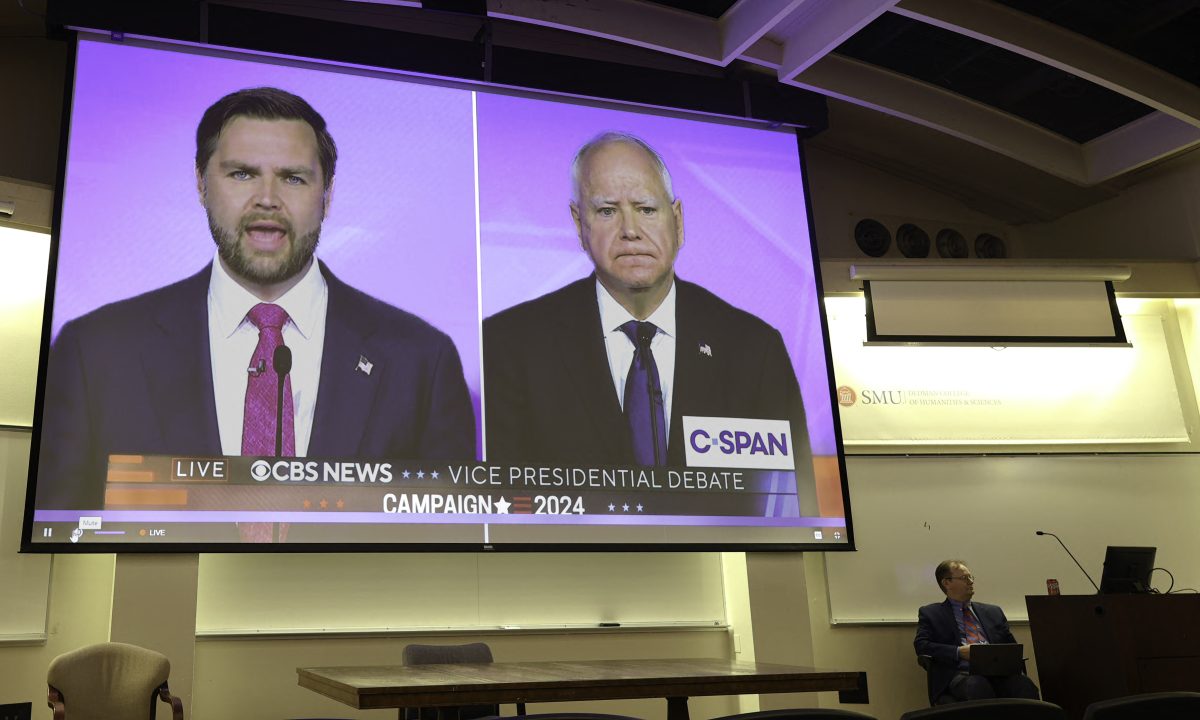While traditional history courses stop at simply informing students about societies both good and bad, a unique course at SMU challenges students to create their own positive history by working in the community.
“The overarching purpose of the Good Society course is to help students develop ’empathetic intelligence’ with others, particularly those whose life experiences are very different from theirs,” said Dr. James Hopkins, chair of the Clements Department of History and professor of the Good Society Honors course.
The Good Society, a four hour spring semester Honors Department course that satisfies an American or European history department requirement, extends chronologically from the revolutions of 1848 to contemporary societal issues and problems with a focus on the historical construction of the concept of the “good society” in Western culture.
“An important part of the course is community service that seeks to help students better understand the many causes of homelessness, and to see and participate in what Dallas organizations are doing in response,” said Dr. Hopkins.
In accordance with the SMU mission statement, the course seeks to “shape citizens who contribute to their communities.”
“Through community service, students see what is being done and what might be done to address one of our city’s most profound social problems,” Dr. Hopkins said.
By performing two hours of volunteer work each week at the Dallas Interfaith Housing Coalition, students in Dr. Hopkins’ Good Society class work to instill a sense of hope in the lives of the homeless by helping to prepare cheerful, fully-furnished apartments. Unlike government-subsidized urban housing, which is often bleak, the IHC focuses on preparing warm, upbeat apartments to people who have suffered anything from political persecution to domestic abuse. The IHC furnishes each apartment with silverware, brightly colored linens, towels, toiletries, food, toys and appliances tailored to each family’s needs.
As a transitional housing program, the IHC helps Dallas-area homeless families gain self-sufficiency in all sectors of their lives. The IHC provides the necessary intervention, training and services to holistically meet the needs of homeless families. The IHC program includes a job search program, after-school program, adult counseling, play therapy for children, evening childcare and classes on living skills, budgeting and employment. Good Society students perform tasks ranging from cleaning apartments to babysitting in order to facilitate the residents’ ascent toward self-sufficiency.
“Students have had wonderful attitudes and have been willing to do whatever they were asked to do and have done it well. They have given us the ability to accomplish tasks that would have taken much more time,” said Vonnie Robertson, the Dallas-area IHC Volunteer Coordinator. “They have given us labor hours that have directly helped the staff workload and the time that it takes us to get a family moved into the apartments. The student volunteers have also helped our children’s area be better staffed assuring each child sufficient attention.”
“I love my work. I help the residents and I help God. The students help us a great deal. It is such a blessing for the students to help us out. We can move families in faster because the students do work for us that would normally take hours for us to do,” said Mario Soliero, a full-time employee at the IHC Dallas site.
Dr. Hopkins’ Good Society class has left a legacy of SMU alumni who still volunteer and donate money and supplies to the IHC.
“Many SMU alumni are associated with IHC and they are always happy to hear that SMU students are serving here,” said Robertson.
While SMU students have assisted the IHC program with its mission toward “helping families transition to self-sufficiency and new hope,” the IHC program has helped students realize their potential towards creating a better society.
“It is kind of hard to be at Interfaith and not be touched by what happens here. It is always my concern that each volunteer walk away feeling like they have made a difference and knowing that there are good people in the world doing good things and that together we can make a difference,” said Robertson.








